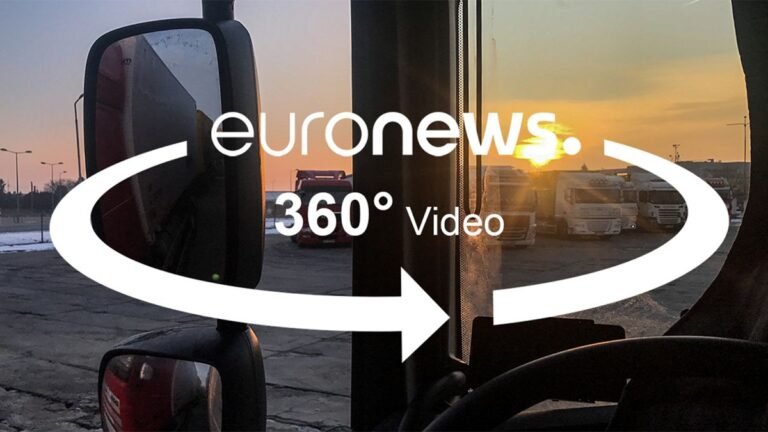On the outskirts of the Polish capital Warsaw, Ukrainian truck driver Ruslan Novikov begins the journey in his double-trailer truck.
On the outskirts of the Polish capital Warsaw, Ukrainian truck driver Ruslan Novikov begins the journey in his double-trailer truck. Our journalist Natalia Lyubchenkova joins him for nine days.
The truck cabin is Ruslan’s home for the next several months. There is a bed directly behind the driver’s seat. Below is a pantry filled with products. He is unlikely to return home before the summer!
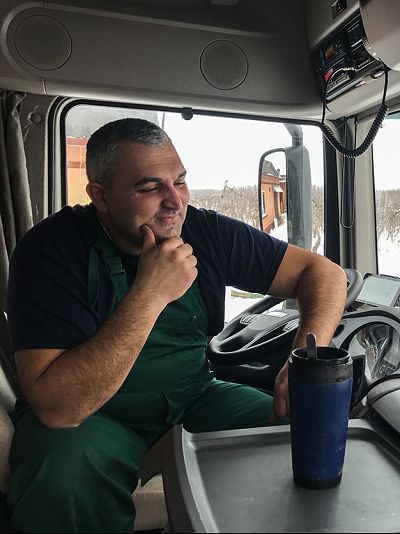

Ruslan’s working week begins with delivery. He brings empty wooden apple crates to the farm. While unloading, the truck farm owners and the driver have a friendly conversation. This work takes two hours. Another five hours – both waiting time and working time – were spent loading the truck again at another nearby farm.
It took almost all day to unload and load the truck, but Ruslan is allowed to drive until midnight. Then he stops in the parking lot for the night, heats up his meal on the gas stove and watches a movie on the computer. He sleeps on the first level bed, and the journalist sleeps on the second level.
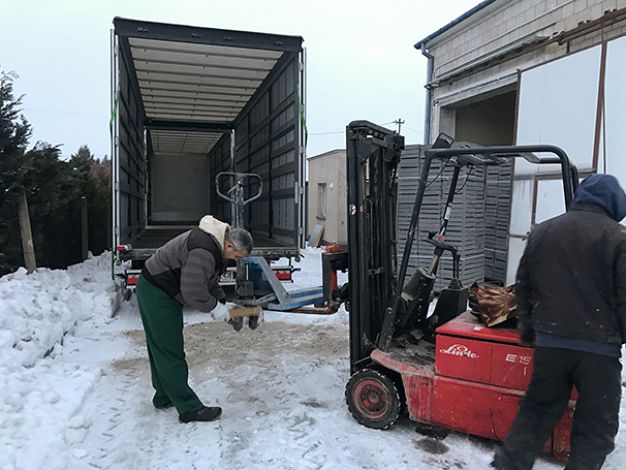

Early the next morning, Ruslan stuck his teeth out the truck window and heated the kettle to make coffee. He then checks to see if his rest period is long enough.
On the road, at a parking space or delivery point – the driver must be aware of many regulations, take care of paperwork and logistical issues. Driving a heavy vehicle requires a lot of concentration as well.
We then travel through Germany, driving all day with required 45-minute stops every three hours. The driver uses this time to cook and eat a meal. He never eats at roadside cafes. He also fills out papers, plays games or communicates with his family and colleagues on the phone.
Finding a free, safe parking spot before his driving time is up for the day is often a challenge. His work days often end late, and his free time is also spent in the truck.
On the morning of the third day, we crossed the Dutch border to deliver the shipment. Then we travel via Holland to load the truck again. So our destination is Spain. We have 1,420 kilometers ahead of us through Belgium, Luxembourg and France.
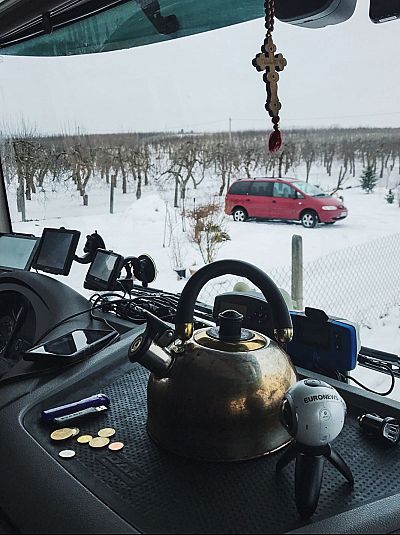

We arrive in Spain on the fifth day, where Ruslan has to take a 45-hour layover. Sleeping in the truck is prohibited during this time. Some countries turn a blind eye to this, others impose strict controls, but road infrastructure does not seem to be sufficiently developed anywhere. Safety is a big concern as well.
“When we reach the maximum working hour of 45 hours, we might be in Germany or in France and we can’t move any further because we will be fined? In addition, we cannot stop because we will also be fined. Haven’t arrived at the hotel yet. The hotel cost is 50 euros. You have to take a taxi to get there. You should also leave the charged vehicle behind and unattended. “You may come back to find the car, cargo and fuel gone.”
The 45-hour work week is over. During this time, the driver did not see anything except the road or parking lots. For convenience he chose a car park not far from Tarragona, north-eastern Spain. Here the sea beach is only 500 meters away!
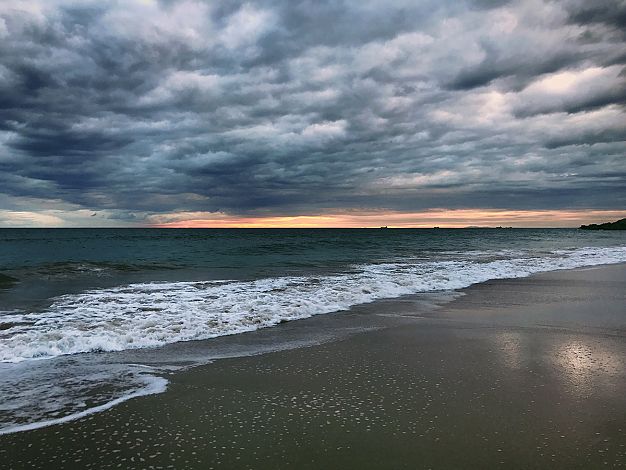

Some drivers say that they find it really comfortable here, compared to other parking places.
Bikers meet each other on weekends in Tarragona. Some of them have known each other for years. Here our journalist meets drivers from France, Spain, Portugal, the United Kingdom and Germany.
After sharing a drink, a group of bikers, mostly from Portugal, went out to cook a meal. As usual they do it on the gas stove between the trucks. They eat from a shared bowl, sing and laugh, and tomorrow is the start of another week on the road.
We have 3,953 kilometers behind us. All this in nine days and I’m about to get out of here in Lyon very soon.
This research was enabled by Reportes in the Field, a program run by the Robert Bosch Foundation and hosted by the media NGO n-ost.





